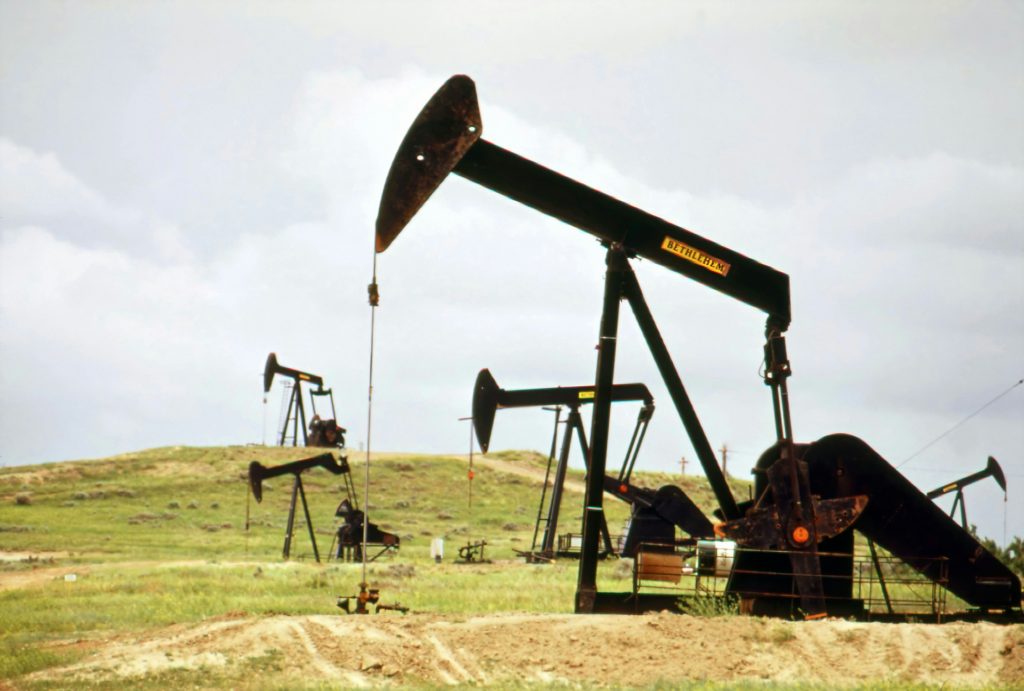Why Trump wants to ban Russia from selling its oil

On 13 September, Donald Trump announced on his social media platform Truth Social that he had sent a letter to all NATO countries asking them to 1) completely stop buying fossil fuels from Russia and 2) impose sanctions on China and other third countries that continue to do so. How is it that Donald Trump, who has been so conciliatory towards Putin until now, now wants to completely ban Russia from exporting fossil fuels?

Until now, the goal was not to prevent Russia from exporting its oil
In September 2022, the G7 decided to cap the price at which Russia could sell its oil at $60 per barrel and to sanction those who bought oil from Putin’s Russia at a higher price. And this cap has been largely respected so far, including by China and India. Meanwhile, sanctions against the fleet of Russian ghost tankers transporting these hydrocarbons have been steadily strengthened since 2022. Combined with the fall in oil prices on the world market, this has resulted in a halving of Russia’s revenues from fossil fuels since spring 2022, according to estimates by CREA’s Russian Fossil Tracker.

Europeans have long discussed lowering this cap to $45 or even $40 per barrel, but this has never been agreed upon, either within the G7 or the European Union. However, until now there had never been any question of completely banning Russia from selling its oil on the global market. The reason is simple: with Russia accounting for 12% of oil production and 17% of gas exports in 2024, such a ban would destabilise the global market and cause prices to skyrocket, which would weigh heavily on all non-producing countries. This would affect Europe, of course, which now imports almost all of the gas and oil it consumes, but also many countries in the “Global South”, which are often already very sensitive to Putin’s anti-Western propaganda and would therefore risk swinging decisively into the camp of Beijing and Moscow.
Why is Donald Trump, usually so conciliatory towards Putin, now so insistent on a complete blockade of Russian oil exports? To the point of falling out with Narendra Modi’s India over the issue and pushing it into Beijing’s arms, as we saw on 1 September at the Shanghai Cooperation Organisation summit in Tianjin, a geopolitical feat…
The price per barrel is too low for the American oil industry.
As is often the case with Donald Trump, the main reason can be found in US domestic politics and his supporters in the business world: the current price of oil on the world market is too low. With the global economic slowdown accelerating, due in particular to the uncertainties created by US tariffs, the price of oil has indeed been on a clear downward trend on the world market in recent months. The price of a barrel of North Sea Brent crude, which serves as a benchmark, is now close to $60, the price imposed on Russian oil.

This price no longer makes American shale gas and oil, which is particularly costly to extract, profitable and the number of new wells coming on stream in the United States is plummeting, according to data collected by the specialised organisation Baker Hughes.


Where does Europe stand with Russian fossil fuels?
What would Trump’s demands mean for Europe? Since the outbreak of the war, the European Union and its member states have spent €141 billion to help Ukraine, according to the Kiel Institute for the World Economy, but at the same time they have purchased €214 billion worth of fossil fuels from Russia, according to CREA. Imports of Russian fossil fuels to Europe have fallen sharply since 2022, but they remain significant.


The European Union has not imported Russian coal since 2022, as it is subject to a European embargo. It still imports very little oil, 2% of the total, mainly to Slovakia and Hungary, but imports of Russian gas are not subject to European sanctions, contrary to popular belief. And they remain significant: they account for 14% of total gas imports into the EU in the first quarter of 2025, according to European Commission data. 11% of gas imported by pipeline and 17% of Liquefied Natural Gas.


Russian LNG is mainly imported via Belgium, France and Spain, which accounted for 85% of the total in 2024, according to the IEEFA.

Although it is not currently mentioned in Donald Trump’s ultimatum or in public debate, the European Union still imports a quarter of the nuclear fuel used in its power stations from Russia, according to data compiled by Bruegel… Contrary to popular belief, nuclear power does not guarantee Europe’s energy independence any better than gas or oil: 100% of the uranium used in European power stations comes from outside the European Union, particularly from Russia.

What effect could Donald Trump’s ultimatum have on Europe? If it forces Viktor Orban and Robert Fico to finally break with Moscow on fossil fuel supplies, and if it leads other Europeans to abandon their hypocrisy by stopping buying Russian LNG, then why not? With this demand, Donald Trump is seeking in particular to consolidate the commitment made by Ursula von der Leyen at Turnberry to buy more hydrocarbons from the United States.
Forcing Europe to align itself with the United States against China
However, it is above all his demands for secondary sanctions to be applied to China and others that are problematic.
A total blockade of Russian fossil fuel exports would first destabilise the global market and trigger a substantial rise in oil and gas prices. This would certainly be favourable to struggling American shale gas and oil producers, but very negative for Europe and non-producing countries in the rest of the world in an already deteriorated economic context. We remember the massive negative effects on the European and global economy of the energy price shock caused by the war against Ukraine in 2022-2023.
Beyond energy prices alone, the 50% tariffs that Donald Trump is asking Europe to impose on China would also have a massive negative impact on the European economy, as they would lead to a significant rise in inflation within the Union.
Finally, on the geopolitical front, Donald Trump intends, with this demand, to force Europeans to align themselves completely behind him in the Sino-American conflict. This is a very dangerous trap for Europe and its future.
And in the meantime, this ultimatum also gives him an additional pretext to continue doing nothing against Russia as long as the Europeans refuse to follow him down this slippery slope.




